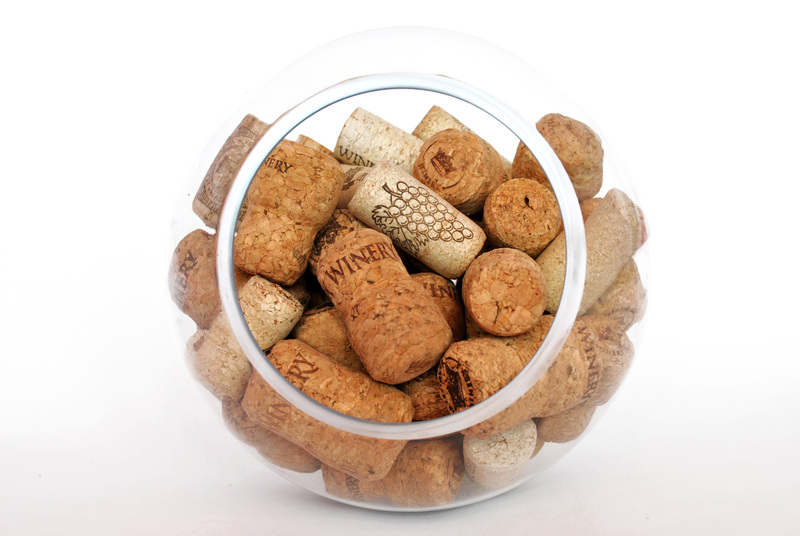Simple Tips to Cut Down on Household Waste
Household waste is a growing concern as our planet faces increasing environmental challenges. Every home generates waste--food scraps, packaging, disposables, and unwanted items--that quickly adds up and impacts landfills, pollution, and resource depletion. The good news? By making small, conscious changes, each of us can significantly reduce our home waste and contribute to a greener future.
Are you ready to make a difference? Here is a comprehensive guide featuring simple yet effective tips to cut down on household waste. From meal planning and shopping smart, to composting and proper recycling, this SEO-optimized article covers every aspect you need. Dive in and discover actionable, easy steps for waste reduction at home.

Why Reducing Home Waste Matters
- Environmental Protection: Waste sent to landfills generates methane, a powerful greenhouse gas, and can contaminate soil and water. Less waste equals lower environmental impact.
- Conserving Resources: Reducing, reusing, and recycling protects scarce natural resources needed to produce new products.
- Saves Money: By buying less and reusing more, you'll save on shopping and utility bills.
- Healthy Living: Cutting down on disposables and processed foods encourages a healthier, less toxic lifestyle.
Reducing your household waste does not require a drastic lifestyle overhaul--small consistent actions add up over time. Let's explore simple, practical strategies you can adopt today!
Plan Smarter: The Foundation of Waste Reduction
1. Make Thoughtful Purchases
- Buy Only What You Need: Avoid impulse shopping. Plan groceries and household items based on actual needs to prevent overbuying.
- Choose Durable Goods: Select long-lasting, repairable items over single-use or low-quality products that quickly end up in the trash.
- Look for Minimal Packaging: Prefer products with reduced or recyclable packaging. Bulk choices and refills can significantly reduce waste at home.
2. Embrace Meal Planning
- Plan Weekly Menus: Decide on meals in advance. This reduces food spoilage and unnecessary purchases.
- Use Up Leftovers: Get creative! Make soups, stir-fries, or casseroles from surplus food before it goes bad.
- Practice FIFO: "First In, First Out" means placing newer groceries behind older ones in the fridge or pantry, so nothing gets forgotten.
3. Reduce Food Waste
Did you know that food waste is one of the largest components of household rubbish? Here's how to minimize it:
- Learn Proper Storage: Keep fruits and vegetables fresh longer with the right storage methods--refrigerate what's necessary and keep some produce at room temperature.
- Compost Organic Scraps: Instead of tossing peels and trimmings, set up a kitchen compost for nutrient-rich soil in your garden.
- Freeze for Later: Preserve extra bread, cooked grains, or chopped veggies in the freezer to prevent waste and save time on busy days.
Reuse & Refill: Replace Disposables with Reusables
Many disposable products are convenient but contribute significantly to domestic waste. Swapping single-use items for reusables is an easy, cost-effective way to reduce trash at home.
1. Embrace Reusable Bags and Containers
- BYOB - Bring Your Own Bags: Keep reusable bags in your car or purse for all your shopping trips.
- Use Glass or Stainless Steel Containers: Store leftovers, snacks, and pantry staples in durable containers instead of disposable bags or wraps.
- Avoid Single-Use Tableware: Reusable cutlery, cups, and plates are ideal for parties, picnics, and lunchboxes.
2. Eco-Friendly Alternatives for Everyday Products
- Switch to Cloth Napkins and Towels: Replace paper towels with washable napkins and cleaning cloths.
- Opt for Refillable Cleaners: Try concentrated cleaning products or make your own cleaning solutions using vinegar, baking soda, and lemon.
- Use Refillable Water Bottles: Cut down plastic bottle waste by carrying a reusable bottle and filling up on the go.
- Rechargeable Batteries: Invest in a set of rechargeable batteries to lower your electronic waste footprint.
Every reusable swap takes you one step closer towards a zero waste home.
Recycle Right: Improve Recycling Habits
Correct recycling is crucial to reducing landfill waste, but even well-intentioned households sometimes get it wrong. Here are smart ways to enhance your recycling efforts:
- Check Local Guidelines: Every municipality has different rules for recycling paper, plastics, glass, and metals. Post the list on your fridge for quick reference.
- Prevent Contamination: Rinse food containers before recycling. Keep non-recyclables like greasy pizza boxes and plastic bags out of bins.
- Recycle Electronics Properly: Take batteries, laptops, and old phones to designated e-waste drop-off centers.
- Don't Forget Textiles: Donate gently used clothes or repurpose them into rags instead of discarding them.
Be Mindful of Packaging and Product Choices
1. Shop in Bulk and Use Refill Stations
- Bulk Buying: Purchase staples like rice, grains, nuts, and detergent in large quantities using your own containers to minimize packaging waste.
- Local Refill Stores: Many stores now offer refill options for pantry items, personal care, and cleaning products. This is a great way to keep home rubbish to a minimum.
2. Choose Eco-Friendly Packaging
- Compostable Packaging: Where available, select products packaged with biodegradable or compostable materials.
- Avoid Multi-layered Packaging: Steer clear of items encased in excessive plastic or mixed materials that cannot be recycled easily.
- Support Zero Waste Brands: Give preference to companies committed to sustainable, minimal packaging.
Make Composting a Habit
Composting is a simple method to divert organic waste from your household rubbish bin, turning it instead into valuable compost for gardens or houseplants.
- Set Up a Compost Bin: Whether you have a backyard or a small balcony, there's a compost option for every home. Vermicomposting and bokashi bins work well for apartments.
- Acceptable Materials: Compost fruit/vegetable peels, eggshells, coffee grounds, and lawn clippings. Avoid meat, dairy, and fatty foods (unless you use specialized systems).
- Use Finished Compost: Enrich your soil, pots, or donate to local community gardens once your compost is ready.
Composting reduces landfill waste and keeps your local ecosystem healthy. It's a win-win for everyone seeking to minimize household waste.
Donate, Repair, Repurpose: Reduce What You Throw Away
Before tossing something out, consider if it can be reused, repaired, or donated. Giving items a second life is an essential strategy in every waste reduction effort.
1. Donate Gently Used Items
- Clothing: Drop off clean clothes, shoes, and accessories at local shelters, thrift stores, or charity drives.
- Appliances and Electronics: If they're working or easily repairable, donate to organizations supporting low-income households.
- Furniture and Housewares: Many community organizations welcome gently used home goods.
2. Repair Instead of Replace
- Simple Fixes: Stitch torn clothes, glue broken ceramics, or replace a button before buying new.
- Repair Cafes: Many towns offer community "repair clinics" for mending small appliances, bikes, and household goods.
- Self-Learning: Online tutorials make DIY repairs easier than ever, reducing unnecessary waste generation at home.
3. Repurpose & Upcycle
- Creative Ideas: Turn glass jars into storage, old t-shirts into cleaning rags, or wooden crates into planters.
- Kids' Crafts: Use cardboard boxes, paper rolls, and fabric scraps for fun, eco-friendly projects.

Involve the Whole Family in Home Waste Reduction
Creating a low-waste household works best when everyone is on board. Here's how to foster sustainable habits:
- Assign Tasks: Give family members age-appropriate waste management jobs (composting, sorting recyclables, crafts), making it a team effort.
- Share the Knowledge: Talk about why reducing waste is important--discuss pollution, wildlife, and health impacts.
- Set Challenges: Have fun competitions--who can produce the least rubbish, repurpose the most items, or try new zero-waste recipes?
Waste reduction is a journey. Teaching kids early builds lifelong respect for resources and develops creative problem-solving skills around sustainability.
Summary: Start Small for Big Impact
Reducing household waste doesn't require perfection. Every small action--whether it's using less disposable plastic, composting, recycling correctly, or repairing what you own--makes a significant difference.
- Plan your shopping and meals to avoid excess waste
- Choose reuse over single-use at every opportunity
- Properly recycle and compost to keep waste out of landfills
- Repair, repurpose, and donate to extend the life of your belongings
- Involve your family and community--lead by example!
Adopting these simple tips to cut down on household waste will help you create a cleaner, greener, and *more sustainable home*. Every change counts, and together, we can protect our planet for generations to come.